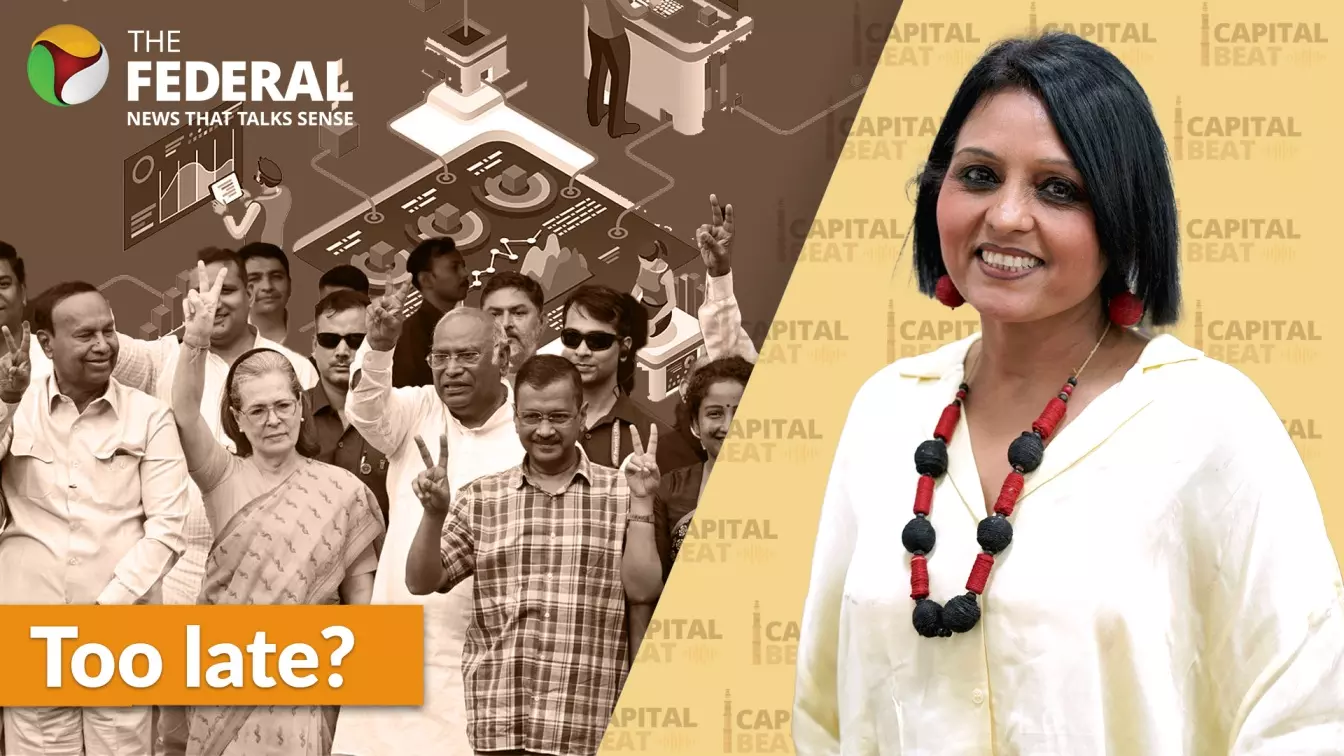
Data Protection Act: 'Big blow to transparency'
INDIA bloc demands repeal of Section 44(3) in the Data Protection Act, claiming it weakens RTI. Will this put pressure on Centre?

In this episode of Capital Beat, Neelu Vyas hosted a crucial conversation with transparency activist Anjali Bhardwaj on the implications of the Digital Personal Data Protection Act, 2023, particularly Section 44(3), which amends the Right to Information (RTI) Act. The episode aired hours after the INDIA bloc held a rare joint press conference, demanding that the Centre repeal the controversial clause that could, they claim, undermine the RTI regime.
Also read: RTI vs DPDP: Activists battle Centre’s data law
Bhardwaj, who recently met Congress leader Rahul Gandhi on this issue, was candid in her assessment: “It’s not a question of too little, too late. The consequences of this law are massive. It’s a direct blow to transparency in our democracy.”
Why Section 44(3) matters
At the heart of the opposition is Section 44(3), which significantly alters Section 8(1)(j) of the RTI Act. According to Bhardwaj, this change will allow public authorities to withhold critical information on the grounds of “personal data protection,” limiting citizens’ ability to access names, loan records, or voter list details.
“Imagine someone asking for details of big industrialists whose loans were written off. Now, this information can be denied under the pretext of protecting personal data,” she said. She added that voter list scrutiny, a vital tool to check electoral fraud, could also suffer, as the Election Commission may no longer make these records public.
Delayed political response
When asked whether the INDIA bloc reacted too late, Bhardwaj explained that while the law passed in August 2023, the urgency wasn’t felt due to distractions like elections and other legislative matters. “Unfortunately, the bill was pushed through Parliament while the Manipur issue and no-confidence motion were being debated. Most opposition MPs had walked out,” she said.
Bhardwaj added that the law remained dormant until recently, when the Centre began planning to operationalise it. “Now, with rules being framed, there is a greater realisation across political parties about the dangers it poses — not just to RTI but also to free speech and democratic functioning.”
Chilling effect on media
A large part of the discussion focused on the law’s impact on journalism. “Under this law, journalists collecting personal data — even for fact-finding — can be classified as ‘data fiduciaries’,” Bhardwaj said. “There’s no journalistic exemption.”
She explained how a journalist or small media outlet could be penalised up to Rs 500 crore by a Data Protection Board controlled entirely by the Central government. “It’s a way of targeting those who ask tough questions,” she said.
“This isn’t just about RTI activists — it’s about every journalist, every political party, every citizen who wants transparency and accountability,” Bhardwaj warned.
Political parties also at risk
Bhardwaj pointed out that political opposition could also be impacted. “Campaigning depends on outreach. If parties collect voters' names or numbers, that too could fall under personal data,” she said. If even a few people file complaints, Opposition IT cells could face massive penalties — while ruling party cells may be exempt under the law.
“This law gives arbitrary powers to the Centre to decide who is and isn’t a data fiduciary,” she said.
Petition scope and next steps
While the INDIA bloc petition specifically calls for the repeal of Section 44(3), Bhardwaj noted that other problematic aspects were raised in the press conference, including concerns about the lack of journalistic safeguards and the centralization of power under the Data Protection Board.
However, IT Minister Ashwini Vaishnaw’s response to the INDIA bloc’s letter did not address Section 44(3) at all. Bhardwaj called this deeply disappointing and said civil society would continue to push for change.
The road ahead
Bhardwaj admitted that legal challenges could follow, but the process would be long and uncertain. “As of now, the law is not operational. We are urging the government to not implement it in its current form. Once operationalised, people will have no option but to approach the courts,” she said.
Despite the bleak outlook, she remained hopeful. “Journalists, citizens, privacy advocates — all are united in this. This law affects everyone. If the government doesn't act responsibly now, it risks damaging the very foundations of our democracy.”
(The content above has been generated using a fine-tuned AI model. To ensure accuracy, quality, and editorial integrity, we employ a Human-In-The-Loop (HITL) process. While AI assists in creating the initial draft, our experienced editorial team carefully reviews, edits, and refines the content before publication. At The Federal, we combine the efficiency of AI with the expertise of human editors to deliver reliable and insightful journalism.)

